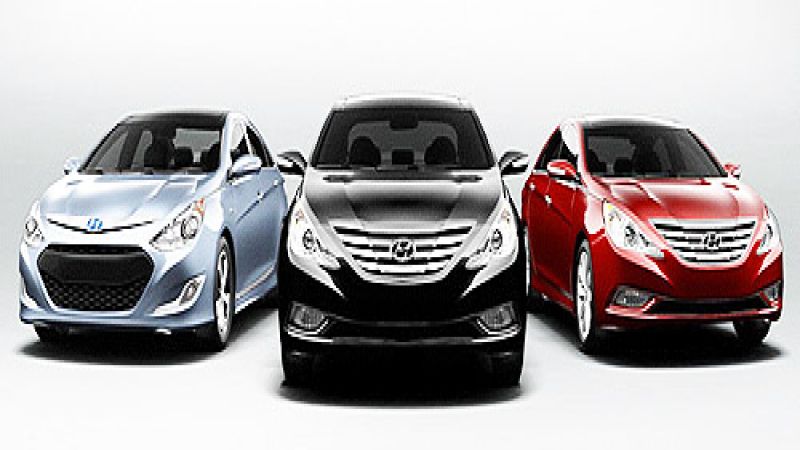That’s with a national average mileage of 22.7 mpg. If the average car sold gets 37 mpg by 2025, as required by CAFE proposals, the difference becomes significant.
Predictably Hyundai is ahead of pack simply because they sell no low-mileage trucks or SUVs. Even the Santa Fe crossover vehicle gets a better than national average 28 mpg, making the average mileage of all Hyundai vehicles sold in America 26.6 mpg.
Honda, who also eschews large trucks and SUVs, came in second with a fleet average of 24.2 mpg. Toyota, the world leader in the sales of hybrid vehicles, also builds full size trucks and SUVs, which lessens their overall average to 23.6 mpg.
Of Detroit’s Big Three, Ford is the one showing marked progress, improving their overall average by one mile per gallon over last year to 21.4 mpg. They have scooted up close to Hyundai in the midsize segment trailing the Korean manufacturer by a scant .3 mpg.
"It may seem insignificant, but an increase of a half a mile per gallon in fuel economy translates to a reduction in fuel consumption of 214 million gallons," said Jesse Toprak, vice president of industry trends and insights at the Santa Monica-based consumer information company TrueCar.com.
The analysts used a simple formula calculating from the vehicle’s EPA mileage rating and defining a set annual mileage number as slightly over half in urban environments, with the remainder on high-speed highways so the numbers are really just informed estimates.
Still TrueCar.com’s view of the data illustrates how a small action multiplied by a factor in the millions can have a very significant impact on oil consumption, greenhouse emissions and American pocketbooks.
Here at TorqueNews.com we are highly in favor of decreasing the first two while adding profusely to the third. Got any problem with that?
Set as google preferred source










